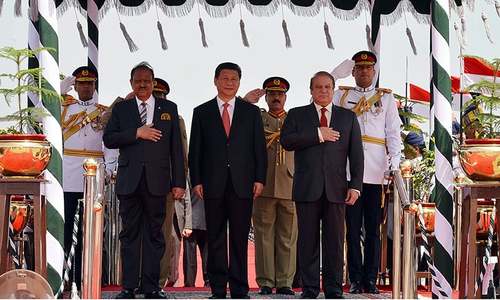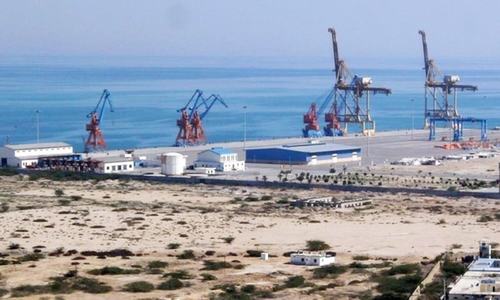New railway tracks planned under CPEC: report

The government has planned major installation and upgradation of railway tracks under the China-Pakistan Economic Corridor, state-run website Radio Pakistan has reported.
Under the plan, new railway tracks will be laid from Gwadar to Quetta and Jacobabad via Besima.
Five hundred and sixty kilometres of track will be laid from Bostan to Kotla Jam on Main Line-II via Zhob and Dera Islamil Khan, while 682km of track will be laid from Havelian to Khunjrab, the state-run broadcaster's website said.
Upgradation of 1,872km of railway track from Karachi to Peshawar via Kotri, Multan, Lahore, and Rawalpindi (including Taxila-Havelian) – along with dualisation of track from Shahdara to Peshawar – will also be carried out.
Some 1,254 kilometres of railway track from Kotri to Attock City via Dadu, Larkana, Jacobabad, DG Khan, Bhakkar, Kundian will also be upgraded.
CPEC: background
The CPEC is a 3,000-kilometer network of roads, railways and pipelines to transport oil and gas from Gwadar Port to Kashgar city, northwestern China's Xinjiang Uygur autonomous region.
Proposed by Chinese Premier Li Keqiang during his visit to Pakistan in May 2013, the CPEC will act as a bridge for the new Maritime Silk Route that envisages linking three billion people in Asia, Africa and Europe.
An official agreement on the corridor was signed between the two countries in May this year during President Xi Jinping's historic visit to Pakistan.
Read: Economic corridor in focus as Pakistan, China sign 51 MoUs.
A flagship project of the Belt and Road initiative as well, the CPEC intends to revive the ancient Silk Road with a focus on infrastructure, and constitutes the strategic framework of bilateral cooperation.
The project links China's strategy to develop its western region with Pakistan's focus on boosting its economy, including the infrastructure construction of Gwadar Port, together with some energy cooperation and investment programs.
It also involves road and railway construction including an upgrade of the 1,300-km Karakoram Highway, the highest paved international road in the world which connects China and Pakistan across the Karakoram mountains.
The CPEC will reduce China's routes of oil and gas imports from Africa and the Middle East by thousands of kilometers, making Gwadar a potentially vital link in China's supply chain.













































